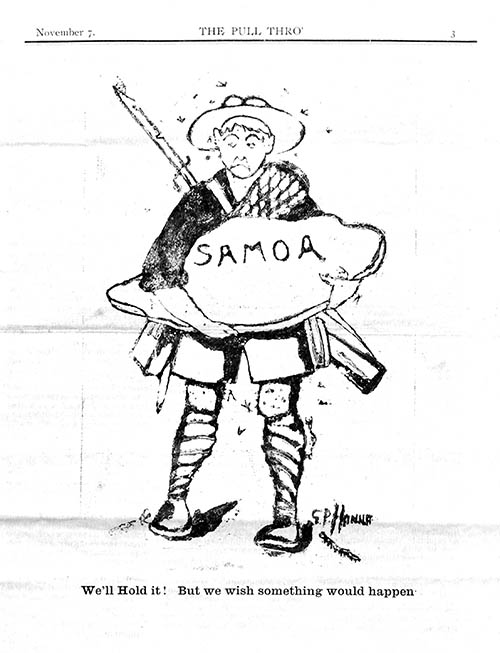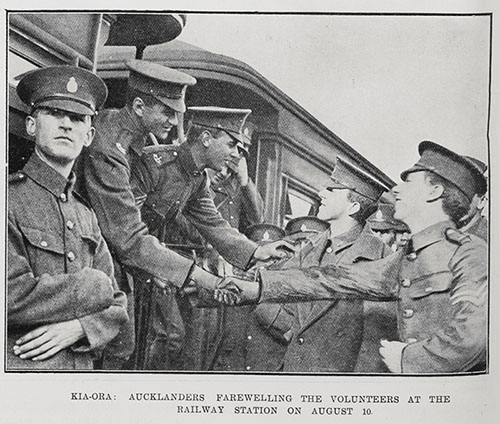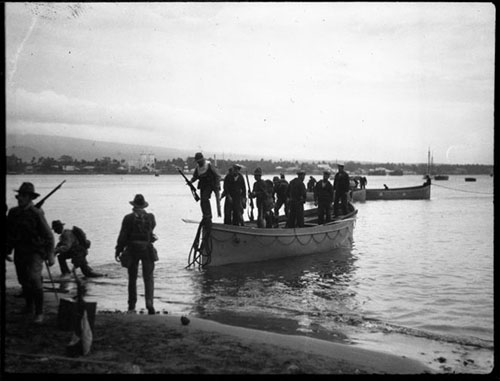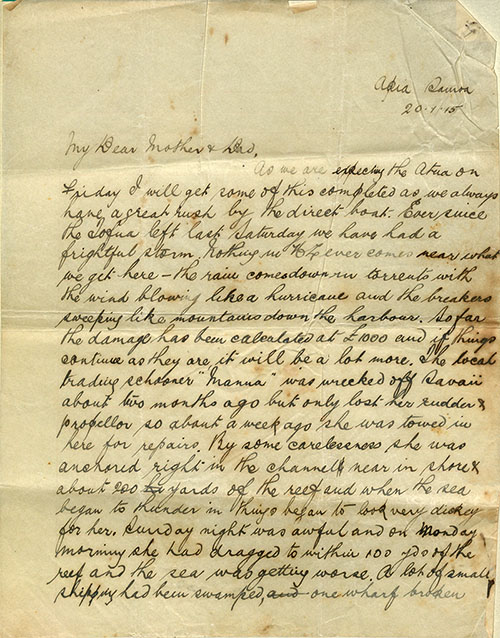
From The Pull-Thro', the Advance Party's magazine.NZGC Outsize 940.395 P98. Special Collections, University of Auckland Libraries and Learning Services.
Occupation life
The troops now settled into the routines of occupation - establishing camps, drilling, improving the infrastructure and generally defending the territory. The German administrators were replaced by military appointees, and eventually interned in New Zealand until the end of the war, along with the Governor, Dr Erich Schultz, and other German citizens considered a threat.
German businesses were placed in military liquidation, which had major impact on the large trading firm, the Deutsche Handels- und Plantagen-Gesellschaft der Sűdsee-Inseln zu Hamburg (DHPG), with interests across the Pacific. The grievances and claims brought about by wartime confiscations were similar to those in Tonga, which are extensively detailed in the Western Pacific Archives.
As Robert McFarland’s letters make clear, for the troops spending their days in relative inactivity, boredom soon set in along with an abiding sense of missing out on the bigger action in Europe and the Middle East. In September he wrote ‘We are all dying to get to Europe now though there does not seem much chance. Nothing very exciting happens nowadays…’. To make matters worse, many of the troops suffered from discomforts and diseases contracted in the tropical environment, including McFarland who was hospitalised twice during his tour with dengue fever and influenza.
However, there were some moments of excitement soon after the occupation. The most alarming was the appearance on 14 September of the feared warships, Scharnhorst and Gneisenau, the latter actually entering the harbour. After a tense standoff, the ships sailed away, apparently because Admiral Graf von Spee could see no strategic advantage in an isolated victory, and the British ships he had expected to find had departed.
Then on 23 September a boatload of German sailors who had been interned in Pago Pago but escaped arrived in Apia harbour, only to be captured and later interned in New Zealand.
Publishing a newspaper also helped relieve the boredom for the troops. They formed `The Literary Committee of the Advance Party', and managed to publish seven issues of The Pull-Thro’ between October 1914 and May 1915. McFarland’s own copies were retained by his family and have now been donated to the Library: they give a soldier’s perspective in this isolated station, including indifferent rations, annoying personalities, and sporting activities.
The six-month tour of the initial occupation force came to an end in April 1915 with the arrival of the relief force from New Zealand. However, the transition to the New Zealand administration would become permanent with the League of Nations Mandate (1920) followed by the United Nations trusteeship (1946), until the country received its independence on 1 January 1962 as Western Samoa.
And what of the 19 Collegians in Samoa? They went on to serve in other campaigns, including at Gallipoli and at the Western Front. Eight would die during the War.
Stephen Innes, Special Collections






